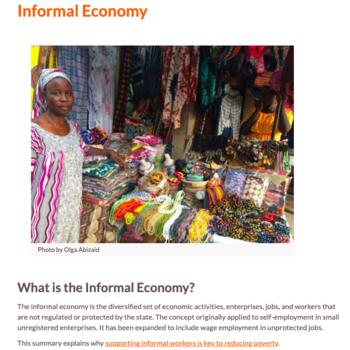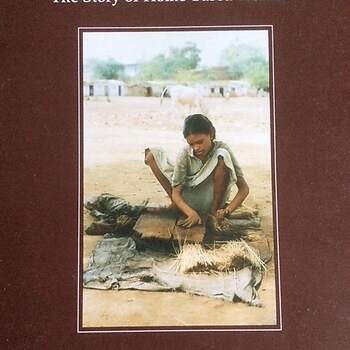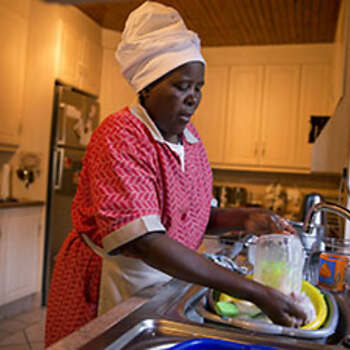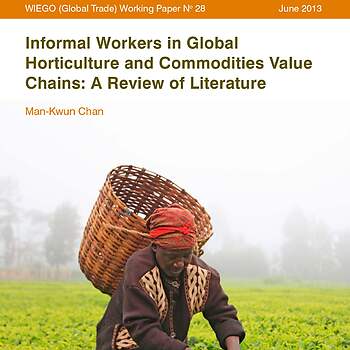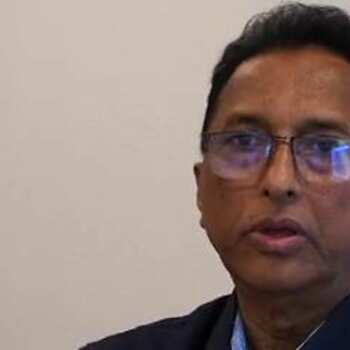The size of the non-agricultural informal workforce, and its gender composition
‘Informal workers’ is a broad category covering the large majority of non-agricultural workers in low- and middle- income countries. The definition of employment in the informal economy includes both those workers who work in informal sector enterprises (enterprises that are not officially registered and do not maintain a complete set of accounts) and those workers who hold informal jobs (jobs lacking basic social or legal protection and employment benefits). This means that informal workers do not have a formal employment relationship with an employer, or a formal registration as entrepreneur. They may work in the informal sector, in the household sector, but also in the formal sector. They can be informal employees, own-account (self-employed) workers, employers or contributing family workers (i.e. working in a family business, whether paid or not).
In lower income countries, half to three-quarters of non-agricultural employment is informal employment. Up to ninety percent of the working women are in informal jobs or self-employed, which includes women working in agriculture. Apart from agriculture, informal women workers are often found in the most vulnerable situations, for instance as domestic workers, home-based workers or contributing family workers.
Dutch support to women as nonagricultural informal workers – 1970s to 2008
In the years up to 2008 support for nonagricultural informal women workers was mostly part of bilateral country programs, and often provided through NGOs. For instance, in the period 1985-1996, some results have been booked in improving the economic position of women in countries such as Kenya and Bangladesh (IOB 1998). Women have been supported in their productive activities and have moved into new economic domains such as new trade activities, or paid work in road construction or water management. Almost in all cases this meant an increased burden of work for women (besides their domestic tasks), but as long as it increased their incomes the women did not mind.
Homebased informal female labor has been supported by Dutch development cooperation through ILO programs implemented in India and Pakistan. An example is the production of footballs at home in Sialkot (Pakistan) at the time of the World Cup Football in 1999.
Savings and credit provided an entry point
Access to finance proved a feasible way of supporting self-employed women. Several groundbreaking Civil Society Organizations (CSOs - or local NGOs) were created in this period by local actors in India and Bangladesh. They focused on micro- and small entrepreneurs, with emphasis on micro-credit and technical improvements, including labor-saving devices. Excellent examples of these CSOs are women’s organizations as the Self-Employed Women’s Association (SEWA), created in 1972, and the Working Women’s Forum (WWF), created in 1978. Both organizations included micro-finance in their activities. The WWF received funding from the Netherlands Embassy in Delhi for many years.
An example of strong local NGOs working for informal working women
An inspiring example from India is the Working Women’s Forum (WWF) that has been initiated by Jaya Arunachalam in 1978 at Madras (now Chennai). Her daughter, Nandini Azad, continues to spearhead this innovative and successful savings and micro credit program for and by poor women. Poor women workers face constraints and oppression in their occupation through barriers of caste, class and gender.
As a movement with a grassroot orientation, WWF adopts a feminist approach and is based on promotion of leadership among working class and mostly unorganized women. It provides micro-credit, training and social mobilization.
The Indian Co-operative Network for Women is a wing of WWF. The organization has today almost 600,000 members spread across three Southern states of Tamil Nadu, Andhra Pradesh and Karnataka. The loan recovery rate in the urban slums and rural areas of India is excellent (near 100%).
The National Union of Working Women is WWF's trade union wing. It facilitates marginalized working women in their struggles to fight for labor, land and housing rights.
The Dutch bilateral program in Bangladesh successfully supported savings and credit supply to women through NGOs, even though it was noted that part of the credit supplied to women was actually used by men (IOB 1998). The savings and credit programs still had positive effects for women: they raised their status, increased their mobility (to go to the meetings), and the saved money acted as a form of insurance. At the central level, MFA supported Women’s World Banking with funding out of the ‘Vrouwenfonds. Women’s World Banking is a global NGO that initially focused on micro-finance for poor women. It is active to this day, ‘dedicated to economic empowerment through financial inclusion of the one billion women worldwide without access to formal financial services’.
Dutch support to nonagricultural informal women’s workers – 2008 to 2020
The MDG3 Fund and its successor programs (see bullet 4) provided opportunities for NGOs working with/for informal women workers to access Dutch funding. The MDG3 Fund supported for instance the NGO Women in Informal Employment: Globalizing and Organizing (WIEGO). Its project contributed to the establishment of (networks) of organizations of domestic and informal workers. As part of FLOW 1, a number of (local) trade unions and NGOs lobbied for ratification of ILO conventions 177 on Home Work and 189 on Domestic Workers, with success in a number of countries.
Several Netherlands-based NGOs also developed programs for and by women entrepreneurs. An example is the CARE Women Mean Business campaign, supported by the H&M Foundation. CARE found that entrepreneurship is empowering. Running a business and having an income helped women gain a stronger position at home and in the community. Women’s achievements make them feel empowered: having more income, paying the bills without problems, being able to make decisions and being respected by family and community members. There was a 33% increase in women taking up leadership positions within their communities.
Dutch trade union support also provided an entry point for support to informal workers. The Dutch trade union confederations CNV and FNV have both been active in development cooperation, with support from MFA, in various programs from the 1990s to this day. Though most of their work is focused on formal workers (see bullet 8), some of the focus was on women and youth in informal work.

